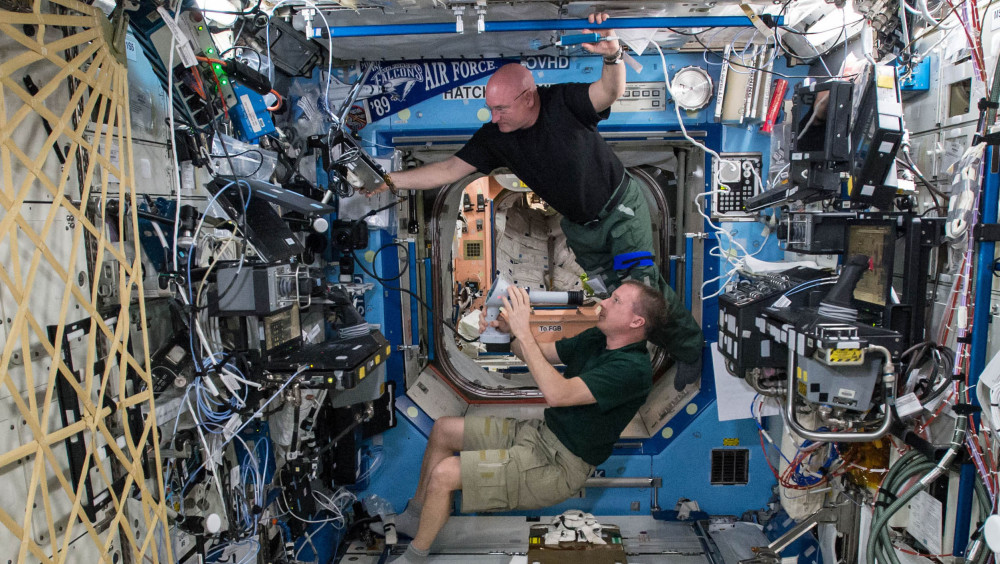CAPE CANAVERAL, Fla. – As soon as he returns from the International Space Station, NASA’s first and only yearlong spaceman, Scott Kelly, will try to pop up from a lying position and stand still for three minutes.
He’ll take a crack at a mini-obstacle course and attempt to walk a straight line, heel to toe – all so researchers can see whether he’d hit the ground running if this were Mars instead of Earth.
NASA considers it crucial prep work for future Mars explorers who will have to spend much longer in space and won’t have the help of a welcoming committee. In fact, this mission – which began with a launch last March – is all about Mars.
“I think we’ll learn a lot about longer-duration spaceflight and how that will take us to Mars someday,” Kelly said Thursday in his final news conference from orbit. “So I’d like to think that this is another of many steppingstones to us landing on Mars sometime in our future.”
Kelly’s 340-day mission – the longest by 125 days for NASA – comes to a dramatic end Wednesday on the remote steppes of Kazakhstan. (It will be Tuesday night in the U.S.) The astronaut will ride a Soyuz spacecraft back with two Russians, including Mikhail Kornienko, his roommate for the past year.
Once out of the capsule, the two will submit to a multitude of field tests.
What could new arrivals do on Mars, asks Dr. Stevan Gilmore, the lead flight surgeon who will be at the landing site to receive Kelly. Could they jump up and down? Could they open a hatch? Could they do an immediate spacewalk?
The tests on Kelly and Kornienko should provide some answers. There will also be blood draws, heart monitoring and other medical exams. The testing will continue for weeks if not months once they’re back home in Houston and at cosmonaut headquarters at Star City, Russia.
Checkups will also continue for Kelly’s identical twin, retired astronaut Mark Kelly. The 52-year-old brothers joined forces to provide NASA with a potential gold mine of scientific data: one twin studied for a year in orbit – twice the usual space station stay – while his genetic double underwent similar tests on the ground.
While a handful of Russians have spent longer in space, the record being a 438-day flight, those expeditions date back to the 1980s and 1990s aboard the Mir space station, rustic if not rickety compared with the current space station. Medical testing was spotty back then, and the data weren’t always widely shared.
As of Thursday – Day 335 – Kelly professed to feeling pretty good. Indeed, flight surgeon Gilmore doesn’t expect any alarming results at touchdown.
Johnson Space Center physiologist John Charles puts the psychological side of long-duration spaceflight right up there with radiation, as well as in-flight medical care and even food preservation and packaging for the long haul.
“Just about everything is a big problem for Mars,” Charles said in a phone interview.
Mars expeditions planned for the 2030s will last 21/2 years.
Copy the Story LinkSend questions/comments to the editors.



Success. Please wait for the page to reload. If the page does not reload within 5 seconds, please refresh the page.
Enter your email and password to access comments.
Hi, to comment on stories you must . This profile is in addition to your subscription and website login.
Already have a commenting profile? .
Invalid username/password.
Please check your email to confirm and complete your registration.
Only subscribers are eligible to post comments. Please subscribe or login first for digital access. Here’s why.
Use the form below to reset your password. When you've submitted your account email, we will send an email with a reset code.